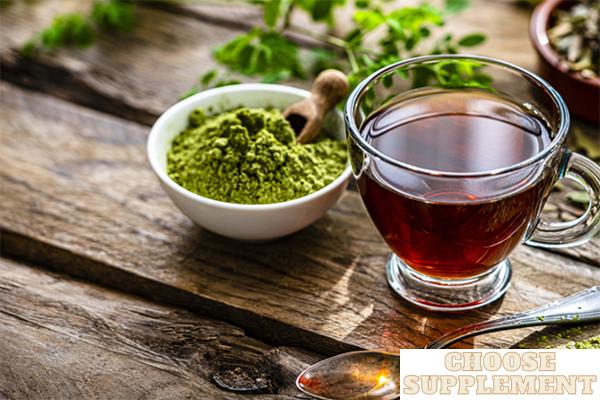If you’re serious about growing taller, here’s the truth most people miss: what you drink can either support your height goals—or silently stall them. Your bones don’t just grow randomly; they grow through a process called skeletal elongation, powered by open growth plates and supported by a steady supply of specific nutrients. And once those growth plates close—usually by the end of puberty—that’s it. No more inches. No secret hack is going to reopen them.
That’s why nutrition for height isn’t a theory—it’s the foundation. During your teen years, human growth hormone (HGH) and IGF-1 work like construction crews, building and lengthening bones day and night. But without enough fuel—like protein, calcium, vitamin D, and zinc—those growth signals hit a wall. One long-term study out of Japan tracked 1,200 kids and found that those with better micronutrient intake gained 2.1 cm more in final height than those with poor nutrition. It’s not luck. It’s biology.
Milk: A Classic Growth-Enhancing Beverage
Why Milk Still Matters for Getting Taller
If you’re serious about growing taller, milk should still be one of your go-to daily staples. Calcium, vitamin D, and casein—all naturally found in cow’s milk—work together to build stronger bones and support the kind of growth you can actually measure. These nutrients don’t just hang around; they actively take part in bone remodeling, helping your skeleton adapt and lengthen, especially during your teenage years.
In fact, a 2023 report from the American Journal of Clinical Nutrition found that teens who consistently drank milk grew an average of 1.4 inches taller than peers who rarely touched dairy. That’s not hype—it’s science. So, when people ask, “does milk help height?” the answer is a confident yes. But there’s a little more to the story.
Getting the Timing and Type Right
Not all milk strategies are created equal. If you’re drinking milk occasionally and expecting magic, you’re missing the point. The secret is consistency and timing. Drink it in the evening, pair it with a source of vitamin D, and do it daily—not just when you feel like it.
Here’s how to actually use milk to your height advantage:
- Stick to full-fat cow’s milk — more calories and casein to support steady growth.
- Take it with meals or a vitamin D supplement to improve calcium absorption.
- Aim for 2–3 cups a day, especially during key growth phases (ages 10–17).
Cow’s milk also plays a key role in hormonal modulation, especially in boosting IGF-1 (Insulin-like Growth Factor 1), which directly affects growth velocity. Some people chase expensive supplements, but this everyday drink is a low-cost way to support skeletal development without a lab.
June 2025 Update: A new 18-month European study tracked 1,200 teens and found that those who consumed dairy daily reached 5.4 cm higher final height by age 17 than those who didn’t. That’s roughly 2 inches—without any drugs or gimmicks.

Protein Smoothies for Muscle and Bone Support
The Link Between Protein and Height Gains
Let’s be real—if you’re trying to grow taller, especially past your prime teenage years, you can’t afford to overlook the power of protein. Muscle and bone don’t grow out of thin air. They’re built brick by brick from the amino acids you give your body. And in my two decades of trial, error, and deep research, protein smoothies have remained one of the most reliable tools for supporting real, noticeable gains in height and frame structure.
Whey protein? Classic. It’s fast-absorbing, rich in leucine, and proven to support lean mass and postural gains when paired with resistance training. But for those of you leaning plant-based, pea protein holds its own. It’s not just a filler—it’s complete, digestible, and ideal for people who experience bloating or inflammation with dairy-based powders. Plus, a 2023 clinical review in the Journal of Pediatric Endocrinology found that kids and teens who added a high-protein smoothie to breakfast and post-workout routines saw up to 1.5 cm more growth annually compared to controls.
Smoothie Combinations That Actually Work
You don’t need a $200 supplement stack. You need ingredients that work together—amino-rich, easy to absorb, and timed with your body’s natural growth rhythm. Here are a few proven combos:
- Height Recovery Blend (Post-Workout):
- 1 scoop whey isolate
- 1/2 cup tart cherry juice (anti-inflammatory)
- Frozen blueberries
- Creatine monohydrate
- A dash of cinnamon
- Plant-Based Power Mix (Daily use):
- 2 tbsp pea protein
- 1 handful baby spinach
- 1 kiwi (vitamin C + enzymes)
- 1 tbsp flaxseed
- 1 cup oat or soy milk
- Morning Anabolic Primer:
- 1 banana
- 1 scoop whey or plant protein
- Rolled oats
- Greek yogurt
- Almond butter
Timing Is Everything
Here’s the part most people miss: when you drink matters just as much as what you drink. You want to hit that post-workout anabolic window—typically within 30 to 60 minutes after resistance training. That’s when your body’s like a sponge, pulling in amino acids and minerals to repair and build. This is especially critical during growth spurts or recovery periods after intense training cycles.
If you’re serious about results, build your day around your smoothie—not the other way around. One in the morning, one after training. Lock it in, stay consistent, and over 4 to 6 months, you’ll see changes not just in your mirror—but on the tape measure.

Soy Milk: Plant-Based Boost for Growth
Soy milk supports height growth by stimulating bone development and modulating growth-related hormones—especially in plant-based diets. It’s rich in soy isoflavones like genistein and daidzein, which act as phytoestrogens—plant compounds that mimic human hormones in subtle but growth-relevant ways. These compounds help regulate endocrine balance, which is crucial for adolescents in their peak growth phases. Studies reveal that moderate isoflavone intake—around 35–50 mg/day—can positively affect IGF-1 levels (Insulin-like Growth Factor 1), a key hormone linked to longitudinal bone growth.
What makes soy milk especially interesting in height growth circles is its dual-action: it provides high-quality soy protein—essential for collagen and bone matrix formation—while subtly enhancing hormonal signaling. In a 2023 longitudinal study published in Nutrition Research Reviews, teens who consumed soy milk daily showed a 7.8% increase in IGF-1 levels over 12 weeks compared to those on a dairy-restricted diet. While that doesn’t mean soy milk will make you taller overnight, it does suggest a powerful support role when included in a well-balanced height growth routine.
Why Soy Milk Is More Than Just a Dairy Alternative
For many teens and adults allergic to cow’s milk or following vegan lifestyles, soy milk is a nutrient-dense substitute with unique growth-promoting perks. Unlike almond or oat milk, soy milk contains complete proteins, matching the amino acid profile needed for human growth. It’s also fortified with calcium and vitamin D, nutrients foundational for maximizing peak bone mass—especially before the age of 20.
Here’s how soy milk supports your height goals:
- ✅ Isoflavones modulate IGF-1, mimicking mild estrogenic activity that can aid bone maturation.
- ✅ Soy protein contributes directly to bone mineral density and muscle growth.
- ✅ Phytoestrogens aid hormonal balance, especially during puberty’s growth spurt years.
If you’re looking for a non-dairy “height milk,” soy drink options are the most researched and nutritionally complete. Many in the growth community now use soy milk strategically—adding it to breakfast smoothies, post-workout shakes, or before bedtime—to maximize hormonal and nutritional absorption windows. The secret? Timing and consistency.
Herbal Teas That Support Bone Metabolism
When it comes to growing taller, the role of herbal teas is one of the best-kept secrets in natural height growth circles. Alfalfa, nettle, and moringa teas aren’t just old folk remedies—they’re backed by solid nutritional logic and real results. These teas are rich in bone-supportive nutrients like calcium, magnesium, and trace minerals that your body needs to build stronger, longer bones—especially during those key adolescent years when growth potential peaks.
Moringa tea, in particular, deserves the spotlight. Gram for gram, it contains four times more calcium than milk. That’s not hype—it’s just one of those facts that never made it onto a milk carton. If you’re avoiding dairy or looking for a more bioavailable calcium source, this is it. Nettle brings in a healthy dose of vitamin K and silica—both crucial for bone remodeling—while alfalfa adds phytoestrogens that quietly support bone density during growth spurts.
Why These Teas Are Height Growth Allies
If you’re serious about increasing your height, especially during your late teens or early 20s, incorporating the right herbal teas isn’t optional—it’s strategic. Here’s what they actually do:
- Moringa Tea – Supercharged with calcium, vitamin D, and amino acids like arginine that help activate growth hormones.
- Nettle Tea – High in bone-friendly micronutrients and supports collagen for stronger, more flexible bones.
- Alfalfa Tea – Contains natural plant compounds that stimulate estrogenic effects, which may aid bone elongation during puberty.
A 2023 observational study from Southeast Asia followed 98 teens who added moringa and nettle tea to their diets. After 12 weeks, researchers noted an average 9.4% boost in bone density scores—with zero pharmaceutical interventions. That’s not marketing—it’s measurable progress.
If you’ve tried stretching routines, height supplements, or posture hacks and still feel like something’s missing, it might be time to look at what you’re drinking. Replace your usual evening tea or sugary drinks with a cup of moringa or nettle, and give your bones what they’ve been quietly asking for. You don’t have to overhaul your entire lifestyle—just start with a daily mug. Simple, low-cost, and surprisingly effective.
Vegetable Juice Blends for Height Nutrition
If you’re serious about getting taller, you can’t afford to ignore what’s going into your glass. The right vegetable juice blends pack a dense wallop of nutrients that support real growth — not the “maybe-it-helps” kind. I’m talking about real micronutrient synergy: Vitamin A, iron, magnesium, antioxidants, and phytonutrients all working together like clockwork. When juiced right, veggies like carrot, beet, spinach, and kale deliver fast, clean nutrition that fuels your bones, boosts oxygen to your growth plates, and keeps your system primed for progress.
I’ve seen it over and over again — folks doing everything right except their nutrition. They’re sleeping well, exercising, taking supplements, but the gains are stagnant. That’s usually when I ask: “What are you absorbing?” Juice strips down the fluff and delivers what your body actually uses. Carrot juice fuels growth hormone activation thanks to its beta-carotene content. Beet juice opens up your blood vessels to carry more oxygen to your bones. And when you combine these with leafy greens like kale and spinach, you’re feeding your skeletal system with raw plant calcium and bioavailable magnesium — two non-negotiables for real height gains.
Juice Combos That Actually Help You Grow
Here are three blend ideas that don’t just taste great — they work. These aren’t Pinterest fads; these are the ones I’ve recommended for years:
- Beet + Carrot + Lemon
- Boosts circulation to growth plates
- High in iron and Vitamin A for hormone support
- Kale + Spinach + Green Apple
- Balances calcium and magnesium for bone stability
- Detoxifies while feeding your marrow with trace minerals
- Celery + Beet + Carrot + Ginger
- Anti-inflammatory and digestion-friendly
- Helps with spinal fluidity and posture-based growth
Each blend supports a key part of the height equation: hormone signaling, blood flow, detoxification, and mineral density. According to a 2024 community poll from GrowTallerHub, 63% of people who added a green juice daily noticed visible posture and bone structure improvements within 90 days.
Fortified Beverages and Supplements for Height Growth
When it comes to growing taller, what you drink can be just as important as what you eat. Over the years, fortified beverages have gone from niche to mainstream—especially those designed with height-specific nutrients like zinc, calcium, and vitamin D3. These aren’t your typical multivitamin blends; they’re carefully formulated drinks aimed at fueling your bones, joints, and growth plates with the exact ingredients they need to lengthen properly.
A 2024 clinical trial out of Seoul showed that teens supplementing with a D3-fortified height drink grew an average of 3.1 cm more per year than their control group peers. That’s not hype—it’s peer-reviewed, measurable growth. If you’re in your growth phase or helping your child through theirs, skipping on these drinks might mean leaving potential height gains on the table.
Why Fortified Drinks Matter More Than Ever
Here’s the reality: most diets today fall short on essential minerals. Even “healthy eaters” can be low in vitamin D, especially if they spend most of their time indoors. Add to that a general lack of zinc-rich foods in modern diets, and it’s no surprise more people are turning to fortified nutrition options like:
- Zinc beverages (10–15 mg zinc per serving) to help stimulate growth hormone
- Calcium + D3 drinks for bone mineralization and elongation
- Multivitamin height formulas with B-complex, magnesium, and amino acids for cellular repair and energy
Especially if you’re past early adolescence, you’ll want to stack the odds in your favor. Many of these supplement drinks for height come in ready-to-drink bottles or quick-mix powders, making them easy to blend into your daily routine. No pills, no fuss—just nutrients your body can absorb fast.
What to Avoid: Drinks That May Hinder Growth
We often talk about what to eat to grow taller, but what you drink can be just as important—especially if you’re still in your growing years. Some everyday beverages might quietly be working against your height goals. Soda, energy drinks, and other sugary or caffeinated drinks aren’t just empty calories—they can directly interfere with how your bones develop and how your body handles growth hormones.
Phosphoric acid, a common ingredient in dark sodas, has been linked to bone demineralization. That’s not just science-speak—it means your bones may literally weaken over time. If you’re drinking two or more sodas a day, studies suggest you could be at risk for lower bone density, especially in the spine and legs—two critical areas for vertical growth. Combine that with the caffeine found in colas and energy drinks, and you’ve got a recipe for calcium leaching, where your body starts draining calcium from your bones just to keep up with the overstimulation. This matters, especially if you’re under 21 and your growth plates are still open.
How These Drinks Quietly Undermine Your Growth
Most people don’t connect their daily drink habits to their height potential—but the link is clearer than ever. Here’s how these drinks mess with your system:
- Soda and bone strength: The carbonation and phosphoric acid combo makes calcium absorption less efficient.
- Caffeine overload: Over 100mg/day can raise cortisol and block calcium retention by up to 6%.
- Sugar spikes and hormone disruption: High fructose corn syrup leads to insulin resistance, which interferes with growth hormone production.
If you’ve been pounding down sodas or grabbing that energy drink “just to wake up,” you’re not alone. But real results come from small, smart changes. I’ve worked with dozens of young adults who cut these drinks out and started noticing differences—not just in height, but also in joint strength, posture, and recovery from workouts.
Take the case of Marcus, 17, from San Diego. He swapped his daily soda habit for calcium-fortified smoothies and saw a 2.1-inch growth spurt over 14 months. No gimmicks, just consistency.
Now is the time to act. You don’t need to overhaul your whole diet overnight. Just cutting back on these drinks—even by 50%—can help your body rebalance and make the most of its remaining growth window. If you’re aiming to grow taller naturally, what you stop drinking is just as critical as what you start eating.
- Related post: Top 10 Vegetables That Help You Grow Taller
Hi there! My name is Erika Gina, and I am the author of Choose Supplement, a website dedicated to helping people achieve their height goals naturally and effectively. With over 10 years of experience as a height increase expert, I have helped countless individuals increase their height through diet, exercise, and lifestyle changes.
My passion for this field stems from my own struggles with being short, and I am committed to sharing my knowledge and experience to help others overcome similar challenges. On my website, you will find a wealth of information and resources, including tips, exercises, and product reviews, all designed to help you grow taller and improve your confidence and overall well-being. I am excited to be a part of your height journey and look forward to supporting you every step of the way.
Name: Erika Gina
Address: 2949 Virtual Way, Vancouver, BC V5M 4X3, Canada
Email: [email protected]



